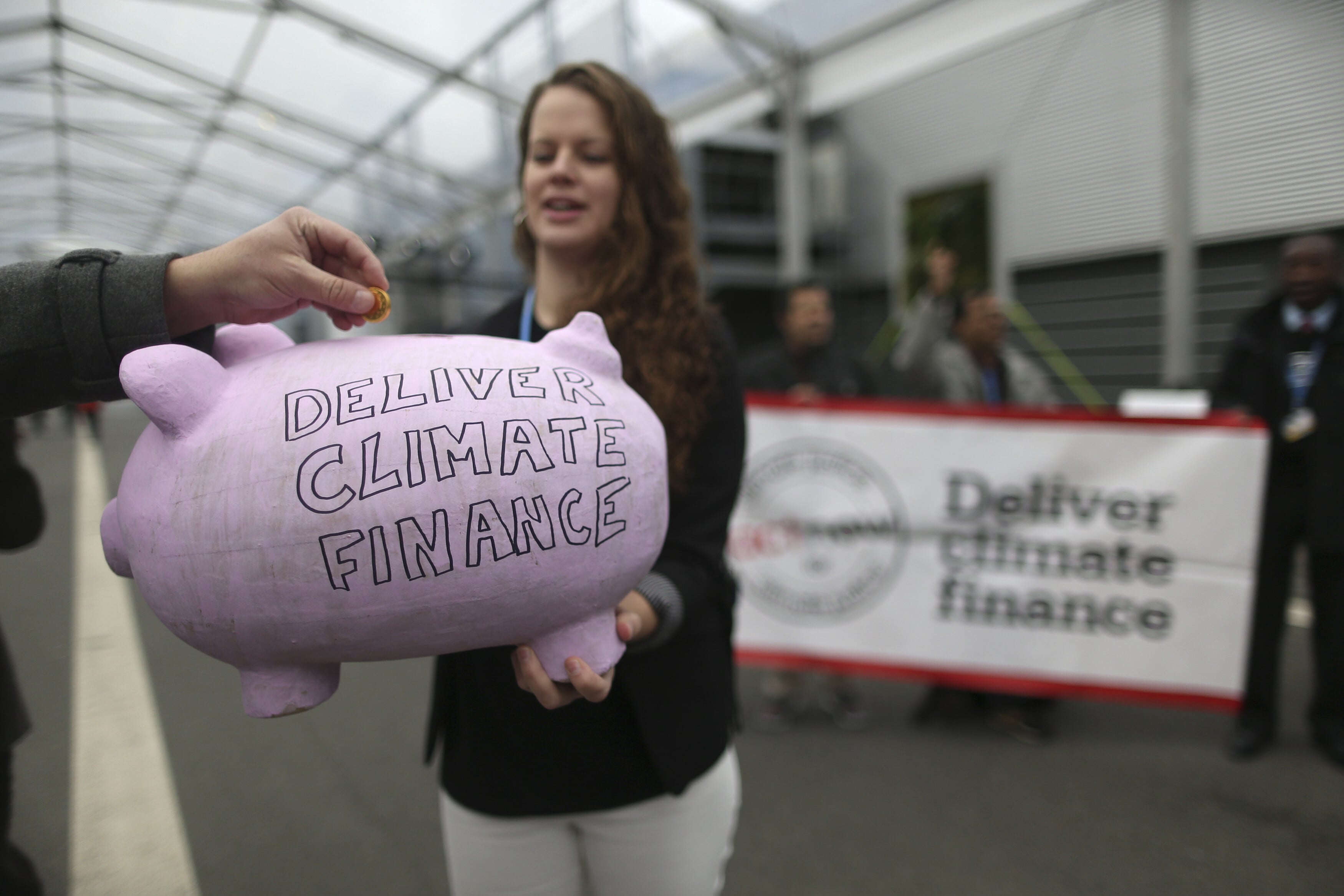How will the next UK government tackle climate change?

The next government will be responsible for negotiating the Paris deal. It is therefore crucial that the UK not only helps design the initial framework for Paris, but also supports the nuts and bolts necessary for implementation. UK climate policy under the next government could focus on three areas to strengthen international action. The first is supporting the development of new business models to decouple emissions from economic growth. The second is promoting technological innovation and cooperation, focusing in particular on helping reduce emissions from the burning of coal. The third is encouraging investment in sustainable solutions, with the aim of ensuring that new fossil-fuel investment does not create ‘stranded assets’ that will lose their value in the future.
Essential context: COP 21 and beyond
Eight months before the 21st Conference of the Parties (COP 21) summit in Paris, multilateral efforts to address the threat of climate change are in the balance. Climate science shows that without urgent action the world will be locked into a high-carbon pathway leading to a rise in global temperature exceeding 2°C, the threshold for catastrophic impacts.
Climate change can only be solved through international cooperation. The effects of carbon emissions transcend borders. The 1997 Kyoto Protocol’s fundamental weakness was that it omitted binding commitments for the United States and China, the world’s two largest carbon emitters. The Paris summit offers the opportunity to forge an agreement covering all major emitters, and thus to provide a more solid foundation for global action on climate change. Prospects for an agreement have improved, in part, because of the historic November 2014 joint US–China announcement on climate change. By signalling their intent to reduce emissions, the two countries have removed the biggest incentive for other states not to contribute. Another reason for optimism is that political accommodation is starting to be backed up by money. More than $10 billion in climate finance has been pledged to the UN-mandated Green Climate Fund. Although this is short of what some had hoped for, the availability of more financing for developing countries to adapt to or mitigate the effects of climate change is likely to broaden support for an agreement.
As welcome as these signs are, any agreement in Paris is unlikely to go far enough in tackling global warming. States are in the process of submitting their proposed actions to mitigate climate change (‘intended nationally determined contributions’ in the language of the UN). But it is increasingly clear that the aggregate of these measures will fail to create a high probability of keeping the rise in global temperature below 2°C. This is likely to generate significant criticism of the Paris outcome from members of the scientific community, civil society and many governments.
This does not necessarily mean that the outcome is not worth having. A settlement in Paris in 2015 could in time be complemented by new action in line with changing political realities, scientific data, human needs and technological capabilities. Indeed, it is crucial that this happens. One way of thinking about COP 21 is not as a final destination but as a snapshot of the risk/opportunity trade-offs that inform the politics of national climate targets and of individual states’ current willingness to act. This calculation between climate-related risk and opportunity is constantly evolving, even though the science has been clear for some time. Governments want to manage risks: of incurring unaffordable costs in transitioning to low-carbon development; of acting when other governments do not; and of suffering the effects of extreme weather events. At the same time, governments seek opportunity: low-carbon technologies offer potential for growth in high-value-added economic sectors; lower pollution is good for public health as well as for the climate; agreement of a major UN deal can cement a politician’s legacy.
What is the scope for UK engagement?
The next UK government can play a meaningful role in helping to boost countries’ commitments. The first challenge is to structure a Paris agreement so that it can incorporate subsequent enhancements, rather than locking in low ambition. Three elements are critical to achieving this. The first is a long-term implementation goal, such as for net-zero carbon emissions by 2050. This would provide businesses with the predictability they need to invest in infrastructure and other assets with long-term horizons. The second element is scheduling a review of national contributions in 2020, based on the latest climate science. Inserting such a clause in the Paris agreement would provide a five-year window in which to influence national positions. Finally, there is a need for strong accounting rules to enforce transparency of national actions.
A concerted diplomatic effort will be required to make this happen, and also crucially to persuade countries to take future climate action above and beyond Paris levels. This is where British policy advocacy comes in. The next government should expand on the significant work of its International Climate Fund and Prosperity Fund in order to promote understanding of the economics and risks of climate change in developing countries, and to make the case for sustainable investment. The UK’s credibility on these issues is enhanced by the recent cross-party agreement between the Conservatives, Labour and the Liberal Democrats to end the use of ‘unabated coal’ (that is, the burning of coal for power generation without the accompanying use of carbon-reducing technologies such as carbon capture and storage). Unabated coal, as the most polluting fossil fuel, is a touchstone issue for climate policy, so the UK is well placed to leverage domestic consensus into international results.
Three ideas
Translating advocacy into policy specifics, the next government could usefully focus on three areas. The first is the development of new business models and policies to transform patterns of economic production and consumption. Governments are often wary of binding commitments to lower carbon emissions if they are not certain of being able to manage the transition. The creation of ‘low-carbon economic zones’ could create spaces for policy and business experimentation without immediately requiring economy-wide transformation. UK diplomacy played a leading role in the creation of the first low-carbon zones in Jilin City and Chongqing in China in 2009. In 2012 the concept was expanded to 29 provinces and cities, including Beijing and Shanghai. An independent peer-reviewed assessment has concluded that the zones were instrumental in China’s adoption of low-carbon policies.
Given this success, the UK could look to replicate this outcome in other countries, especially in the Horn of Africa and Southeast Asia. Both regions are considering investments in unabated coal power generation. Low-carbon zones could provide alternative development pathways based on zero-emissions energy and act as a beacon to attract international climate finance.
The second area of UK policy focus should be on investment in technology cooperation and transfer. This could increase levels of domestic ambition in countries such as India, which has huge needs for increased power generation and large coal reserves, but relatively low capacity in clean-energy technology. India is currently aiming to double its domestic coal production by 2020, largely to support power generation. A dual strategy for technology cooperation could focus on providing alternative solutions to highly polluting fossil fuels like coal, while also developing technology for carbon capture and storage (CCS). However, the UK needs to learn the lessons from its work on the EU–China Near Zero Emissions Coal (NZEC) project, which started in 2005, in particular the importance of structuring appropriate public-private partnerships and providing sufficient financing. The creation of platforms for cooperation, such as the proposed Sino-UK Innovation Forum announced by the British and Chinese governments last year, may provide a mechanism to unlock new forms of technology cooperation.
The third policy focus for the next UK government should be to support investments in assets that are commercially, as well as environmentally, sustainable. Tighter environmental regulation and falling costs in alternative technology may erode future fossil-fuel demand. This could reduce the value of fossil-fuel resources, thus creating ‘stranded assets’. A recent study has suggested that even if CCS technology can be successfully developed, over 80 per cent of global coal reserves would need to remain unused in order for the rise in global temperature to stay below 2°C. It is therefore worrying that a number of developing countries are looking to invest in unabated coal power generation – potentially with assistance from developed countries such as Japan. A country that invests in inefficient assets for which future demand collapses, or which cannot be viably extracted in the future, risks damaging rather than enhancing economic growth.
The UK should raise awareness of the risks from unabated fossil-fuel investment and support investment in sustainable alternatives. It should also lobby against unabated coal funding by donor governments and international financial institutions. This would build on recent positive steps by the World Bank and European Bank for Reconstruction and Development to limit such investment except in cases of extreme economic need.
Who should lead these policies in the UK?
Delivering this agenda will require close cooperation between the prime minister, the Foreign & Commonwealth Office (FCO), the Department of Energy & Climate Change (DECC), and the Department for International Development (DFID). Coordination across Whitehall departments can create institutional challenges, but there are precedents to build on. Given the limited amount of time between the UK general election and the Paris conference, it is vital that the next prime minister makes climate change a priority during his first 100 days in office. An effective deal in Paris will only be secured at head-of-state level, supported by DECC as the lead negotiating department.
At the same time, the sustained engagement necessary to support a broad range of countries moving towards a ‘below 2°C’ climate trajectory will require leadership outside the established negotiating bubble. DFID could lead work on the creation of low-carbon economic zones, potentially working with the World Bank and African Development Bank. The FCO, working closely with DECC and DFID, could lead on technology cooperation, potentially also engaging with European partners (such as Germany and France) and China. DFID, working with the FCO, should lead on sustainable investment issues and on helping partner countries to avoid stranded assets.
Cross-Whitehall cooperation in areas such as the International Climate Fund and Conflict Prevention Pool provides useful lessons on coordination. In particular, dedicated in-country staff are vital to the success of these strategies. Department funding cuts since 2010 have reduced headcounts, so there may be merit in investing in additional capacity in the FCO, DECC and DFID to enhance global climate action.
This article is published in collaboration with Chatham House. Publication does not imply endorsement of views by the World Economic Forum.
To keep up with the Agenda subscribe to our weekly newsletter.
Author: Shane Tomlinson is a senior research fellow at Chatham House where he works on energy, climate and resource governance issues.
Image: The sun is seen behind smoke billowing from a chimney of a heating plant in Taiyuan, Shanxi province December 9, 2013. REUTERS/Stringer.
Don't miss any update on this topic
Create a free account and access your personalized content collection with our latest publications and analyses.
License and Republishing
World Economic Forum articles may be republished in accordance with the Creative Commons Attribution-NonCommercial-NoDerivatives 4.0 International Public License, and in accordance with our Terms of Use.
The views expressed in this article are those of the author alone and not the World Economic Forum.
Stay up to date:
Future of the Environment
Related topics:
Forum Stories newsletter
Bringing you weekly curated insights and analysis on the global issues that matter.
More on Climate ActionSee all
David Carlin and Sourajit Aiyer
July 28, 2025






